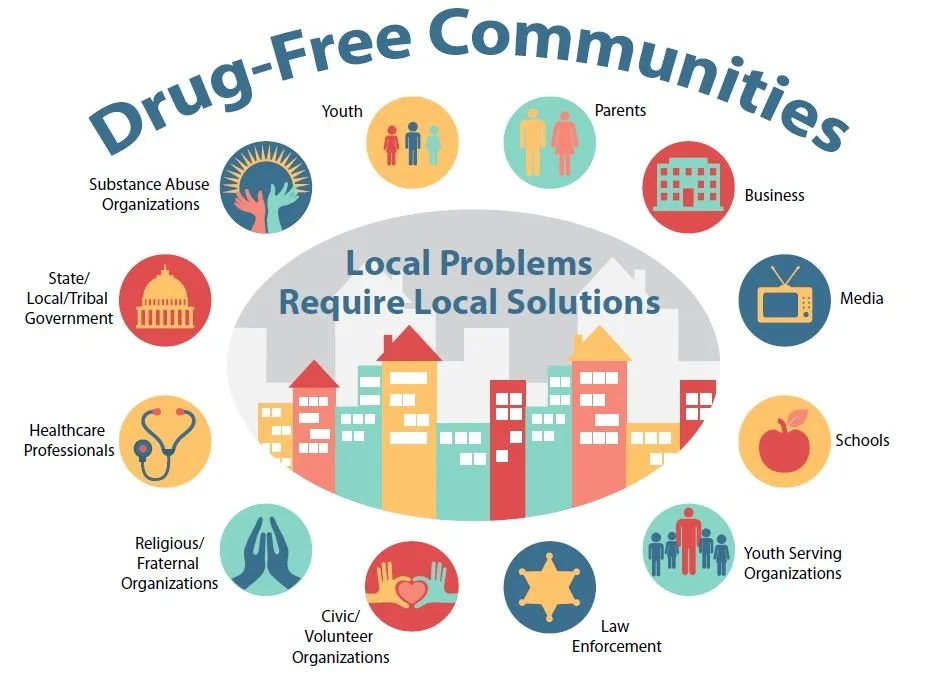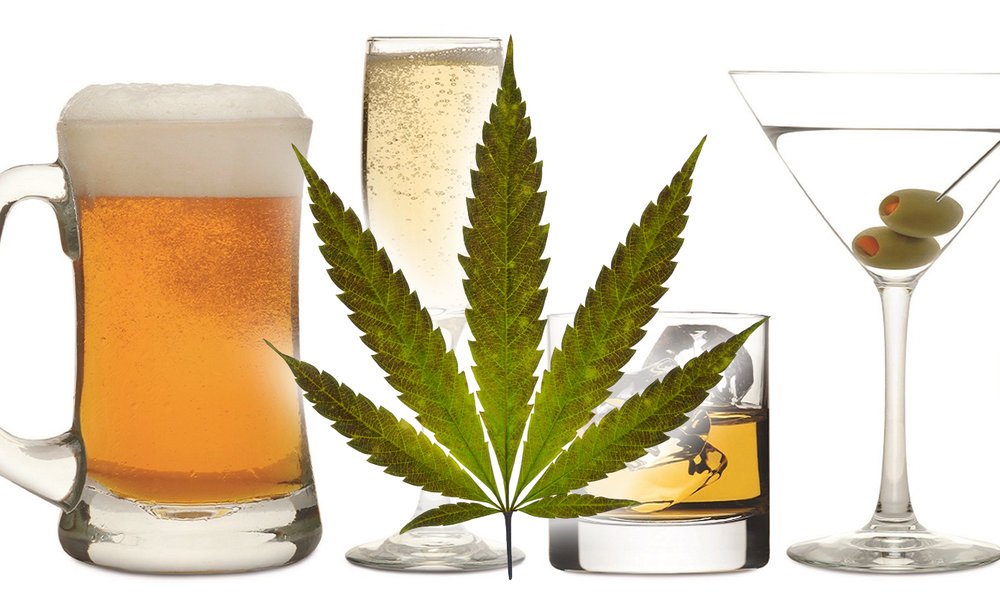
On Abstinence
There are many who believe that strict abstinence from alcohol and/or other drugs from the first day of “recovery”, as advised by twelve step communities, is too strict a bar and that this accounts for the low percentages of people with substance use issues who recover by maintaining strict abstinence. A national study reports that perhaps as many as 50% of the people with a self-diagnosed alcohol or other drug issue consider themselves to be in recovery but among them only 20% follow strict abstinence. Exciting and important research. However, we ask in this article why abstinence gets the “bad rap” that it does and whether or not we should reconsider our approach to the consideration of abstinence.

Drug Addicted Babies, Redux
Recently we learned of locations treating pregnant alcohol and other drug addicts closing their services. This results from a short-sighted reduction in Medicaid recently enacted by the Congress. There are many reports assessing the impact of Medicaid changes that will reduce addiction treatment. Estimates are that nearly 85% of the cost of neonatal abstinence syndrome, babies born in drug withdrawal, is paid by Medicaid. This is not surprising as most of these mothers live in poverty either as part cause or result of their drug use. We were reminded of the article we posted in May 2025 that bears reprise here given what is happening with Medicaid. The bill for this inattention to a very serious issue will come due all too soon.

Would A Focus On The Economics Of Cost From Alcohol and Drug Abuse In America Cause Us To Shift Approach To Reducing That Burden ?
We set out to define the economic burden to America from alcohol and other drug use, abuse and addiction, who pays those costs, who benefits from alcohol and other drug economies. We found that the economic costs were likely in excess of $750 billion and the benefits were likely quite a bit less.
We wondered if this perspective might suggest a different approach to community-based programs to deal with the costs. We found that current efforts focus on those who have traveled far along the abuse and addiction curve and early, education and prevention efforts. The suggestion here is that from an investment perspective we are missing opportunities to identify and influence users and abuser who are not (perhaps yet) addicted. We could reduce the costs on employers, criminal justice, and healthcare by intervening at this juncture as opposed to waiting until so much damage is done.
The focus and programs described here are not intended to demean current efforts many of which have been very successful. Nor do we intend to demean the many professionals actively engaged in current efforts. We do intend to suggest that building coalitions around the economics of the issue as opposed to promoting the moral imperative might allow us to build coalitions and target effective outcomes that we are now overlooking.

Who “Benefits” From Alcohol and Drugs In America?
Who Benefits From Alcohol and Drugs In America?
We have set out to define the costs and benefits of alcohol and drugs in America. Previously we defined the costs and who pays those costs. Now to defining the benefits. As we did with costs, we describe the personal benefits but did not quantify them for inclusion in any equation. Even we were surprised — the costs outweigh the benefits.

Who Pays For The Cost Of Alcohol and Other Drug Abuse?
When we wrote that every system is perfectly designed to get the outcomes that it does, and that the implication was that there are benefits that outweigh the costs in that system, we were challenged to define those costs. In our last article we reviewed studies about the total cost to American society. Today we attempt to define who pays that bill

The National Cost From Alcohol and Other Drugs
A week ago we wrote advocating a comprehensive, persistent, community effort to address alcohol and other drug abuse and addiction. We noted that these were characteristics that served the nation well in addressing the case of tobacco use and in reducing damage from automobile accidents. When we wrote that every system is perfectly designed to get the outcome that it does, and that we might create a case that the cost of reducing the harm from alcohol and other drug abuse was less than the cost of tolerating those outcomes, we were challenged to further define that thinking. Here is an attempt at the first leg of that approach, the cost of alcohol and other drug abuse in America

One Suggested Approach To A Community Strategy
Perhaps, like us, you have a certain distaste when people know what will not work but do not offer their own suggestions. We have in the past, and twice recently, critiqued things that in our opinion will not work. Let us not be among those who do not offer our suggestion. Admittedly, there is not much new in our prescription. As you will see, our suggestion is to be comprehensive and persistent.

Can People In Recovery From A “Drug of Choice” Use Other Drugs Safely?
Can people in recovery from their “drug of choice” use other drugs safely? Say marijuana for an alcoholic or alcohol for an opioid addict? The evidence is very strong that this is maladaptive and unsuccessful for most. One might ask themselves, it seems to us, why one is tempted in that direction

The Key To Solving Crime
Whether or not crime is topmost among concerns by Americans, the President has focused our attention there. He has also defined the solution as greater law enforcement presence. Certainly, pursuing criminals when a crime has been committed is essential. We suggest, however, that we will not police our way out of crime but that attention to the leading causes of crime is required. Alcohol and other drug use, abuse and addiction is one such issue.

Is Compulsory Treatment An Answer For Homelessness?
President Trump recently called for compulsory treatment for the homeless with mental health conditions including substance use disorder. The evidence does not indicate that compulsory treatment is effective. Further, there are important ethical issues at play. This policy should not be pursued.

Substance Use Disorder or Addiction?
Why do we increasingly hear the term Substance Use Disorder rather than addiction? Is there a meaningful difference? The latter term may be more important for the clinician but to the extent that SUD expands our horizons about the extensive damage being done by excess use not just addiction then this term is helpful for us all

What Are The Causes Of Substance Use Disorder
Why is it that some people will use alcohol or cannabis, or use a prescription opioid as prescribed, and do so safely, while another person will develop a pattern of abuse and addiction? There is no single, specific cause as we might have for another disease. There is, however, a great deal we do know about the genetic and environmental issues that constitute a “cause”. We also know that there are other schedule 1 and schedule 2 narcotics that are highly addictive and more likely to cause abuse.

Why Do Alcoholics and Other Drug Addicts Go Far “Down” Before Recovery (If They Do Recover)
To someone not addicted to alcohol or other drugs it is mystifying why an alcoholic or other drug addict would suffer so much pain and continue drinking and using. Domestic strife, job loss, economic ruin, illness, injuries, legal problems, jail, even prison and yet the behavior continues. What does it take? Why does it go on so long?

What Is My Role In My Loved One’s Recovery
Your loved one, friend, colleague has found recovery resources and is pursuing their recovery. Finally! Hallelujah! But, wait a minute. This is all new to you. No one gave you a primer on living with someone who abuses alcohol or other drugs or who has become addicted. Now you realize the same is true for recovery. What’s going on for your loved one? What’s going on for you? What is your role in all this? In this article we will review a few thoughts given to family members whose loved one has entered recovery. Importantly, in our view, we will also suggest that you achieve a focus on yourself.

What’s Wrong With This Hammer?
Early recovery is a confusing time. The admonition to “surrender” seems contrary to everything they have known before. Too, fear is a very powerful motivator making it difficult for people to allow matters to evolve beyond their control. Also, trust issues make it difficult to now believe that “letting go” will be an effective strategy. It is very common for those in early recovery to ignore the example of three million people to lease control and, instead, they try to solve the problem their way. Here’s why.

Why All This Gratitude?
Spend any time with a person in recovery or visit a recovery group and you will hear about “an attitude of gratitude” or about a “grateful recovering addict/alcoholic/gambler. It seems incessant. Why all this gratitude?
In this article we explain the roots of gratitude in recovery, the benefits, the practice, and how peer recovery reinforces this pillar or recovery.

What Is Denial
Although use of the term denial from a behavioral health perspective has entered everyday lexicon, the meaning of the term is not well understood. As part of our attempt to create a greater awareness, in hopes of more effectively addressing this national problem, in this article we attempt to define that term as it applies to substance use disorder.